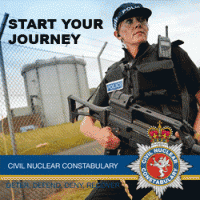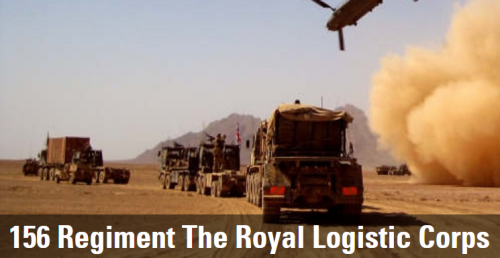
Keeping The Nuclear Sector Safe
The Civil Nuclear Constabulary (CNC) is a specialist armed police service dedicated to protecting the civil nuclear industry. It currently protects 10 civil nuclear sites across England, Scotland and Wales and safeguards nuclear material in transit, playing an important role in national security.
The civil nuclear industry includes nuclear research and provides nuclear energy to millions of people. To protect such an important commodity, as well as the public, takes the work of a police service like no other, with specialist officers, from dog handlers and firearms trainers to specialist escorts.
The Civil Nuclear Constabulary (CNC) and Civil Nuclear Police Authority (CNPA) were established in April 2005. The CNPA is CNC’s governing authority and reports into the Department for Business, Enterprise and Regulatory Reform. It is their job to ensure effective and efficient policing while being responsive to the needs and priorities of stakeholders. The ongoing ambition of the CNC is: “To be recognised as the leading UK authority on the armed protection of civil nuclear facilities and material in transit.”
Unique
Because of the unique nature of the nuclear sector, the CNC in partnership with the civil nuclear industry, national security agencies and regulatory bodies take on the task of constant vigilance. In its simplest terms the mission is to deter any attacker whose intent is the theft or sabotage of nuclear material whether static or in transit. In the event of an attack, the CNC will defend that material and deny access to it. If material is seized or high consequence facilities compromised, the CNC will recover control of the facility and regain custody of the material.
The clear and concise mission statement will put many Service-leavers in mind of their Military days and indeed, of all security and police roles on Civvy Street, this is as close as you’ll get to the modus operandi of the Armed Forces.
The CNC website makes clear both their credo and basic rules of engagement, saying: “We are proud to be a part of the security structure which defends the Nation. We deliver to our mission by being recruited, trained, deployed and developed to the required national and international standards.
We are capable of carrying out our duties in a flexible and dynamic way, instilling in ourselves a clear sense of purpose. If we use force, we do so in a manner proportionate to the threat, recognising and upholding the principles enshrined in the European Convention on Human Rights.”
Pledge
To this end, new officers start their first day of service by pledging to uphold the CNC’s qualities and reputation in an oath: “I do solemnly and sincerely declare and affirm that I will well and truly serve the Queen in the office of Constable with fairness, integrity, diligence and impartiality… according equal respect to all people.”
In some senses the oath represents a very traditional Military (and Police) style of operation but it’s also a very modern way of working. By stripping back the fluff and psychobabble often favoured by organisations to a lean, concentrated oath, it enables all members, irrespective of rank or role, to focus on the important thing, which is to do their own job to the best of their abilities.
The oath also leaves enough space for individuals to challenge themselves to constantly improve and develop. These factors bind the organisation together into a tight team with the pursuit of the national interest at heart and thereby gives citizens confidence that civil nuclear material is safe from terrorist threat.
To achieve the necessary level of policing excellence takes ability but also dedication and the opportunity to develop. This ethos is embraced with trainer, coach or mentor supported, self-managed learning and continuous professional development; offering a number of ways by which to identify, record, develop, improve and reward talent and ambitions.
As an accredited Investors in People organisation, CNC continually invest in learning and development to make sure officers remain the best at what they do and are prepared for future roles. This ongoing process is initiated as soon as an officer is recruited. It continues, driven not only by CNC’s pursuit of and provision for lifelong learning but also by how individuals want to develop their careers – perhaps by acquiring nationally recognised internal qualifications as well as external qualifications from professional institutions. (CNC has a highly experienced training team at their Centre for Learning and Development at their headquarters in Oxfordshire.)
The Civil Nuclear Constabulary has a broad range of career opportunities in a variety of different teams, based at nuclear sites across Scotland, England and Wales. Taking into account your existing skills and experiences, CNC aims to offer opportunities that challenge you and enable you to develop professionally.
CNC also has a number of specialist teams that require specific expertise. Once you have successfully completed your probationary training, you could apply to join one of these teams, such as dog handling, marine escorts, armed response and special branch.
CNC’s police staff operate, develop and manage all of their support teams. From ensuring that the Constabulary runs smoothly and that they have effective IT systems in place, to managing finances and recruiting and developing staff, they provide the vital support that enables operational units to fulfil their duties so effectively.




